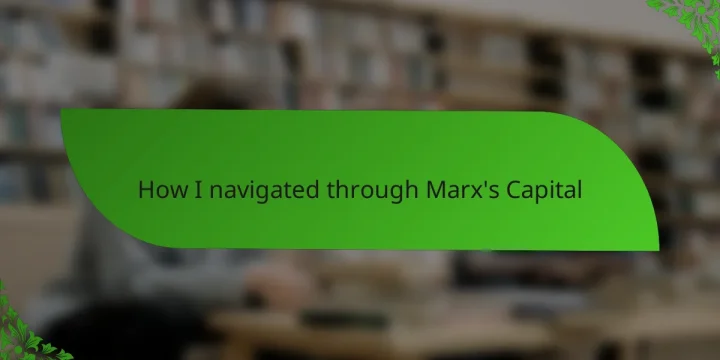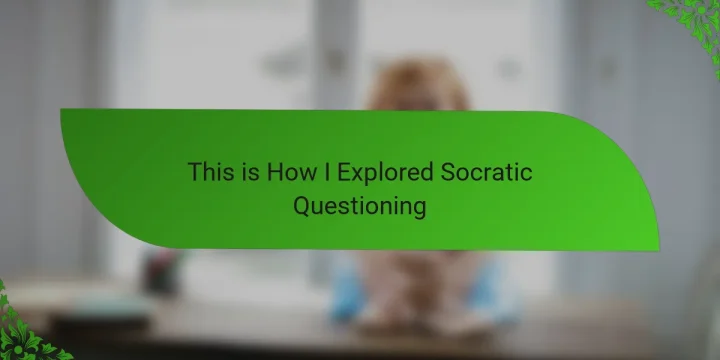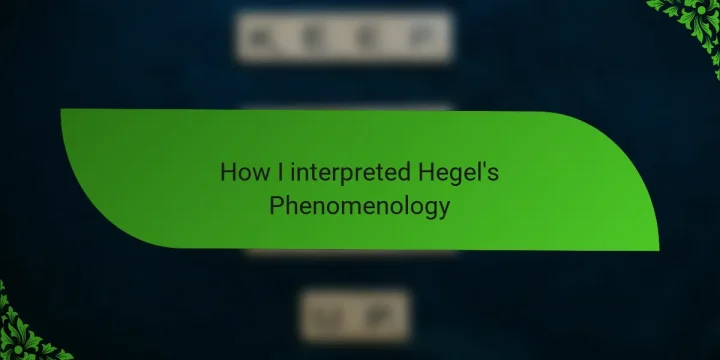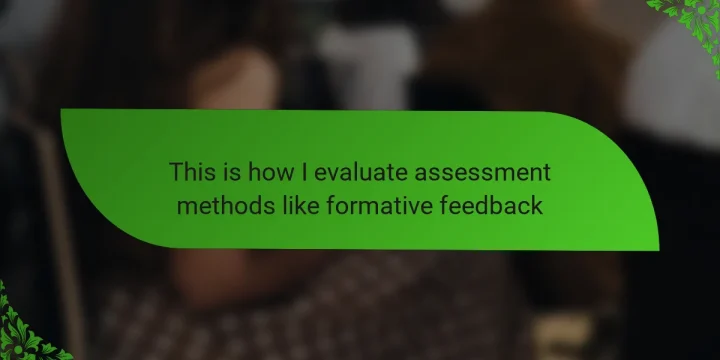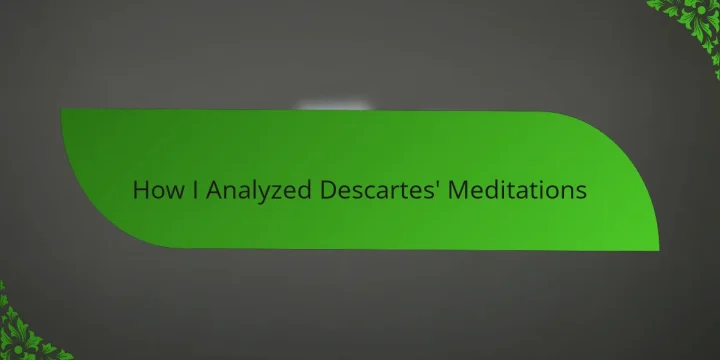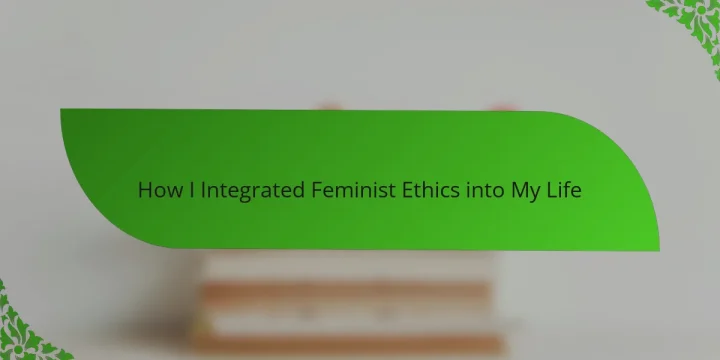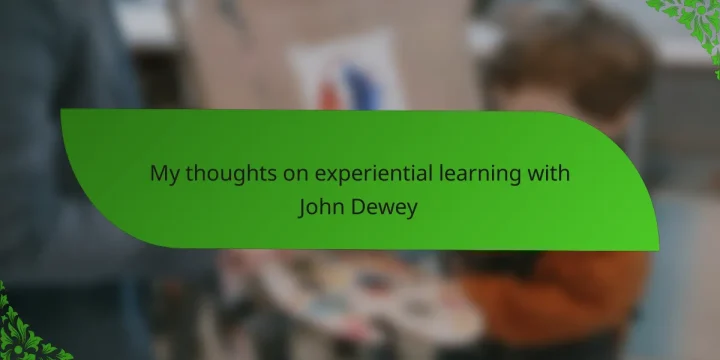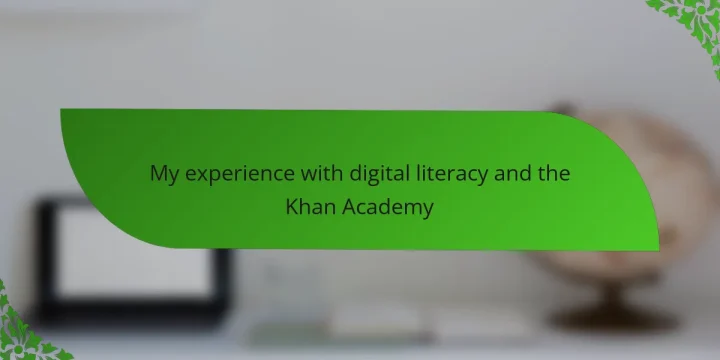
Key takeaways Wittgenstein's concept of language games emphasizes that meaning shifts based on context, showcasing language as a dynamic form of life rather than fixed rules. Applying language games in education helps students engage with concepts in a relatable manner, promoting critical thinking and empathy by exploring multiple perspectives. Challenges in teaching language games include helping students accept fluid meanings, creating relevant scenarios, and assessing understanding in a flexible environment. Personal experiences with language games enhance awareness of communication's nuances, revealing unspoken rules that govern interactions in different contexts. Introduction to Language Games When I first encountered Wittgenstein's concept of language games, I was intrigued by the idea that language is not just a system of rules but a form of life. Have you ever considered how the meaning of…
